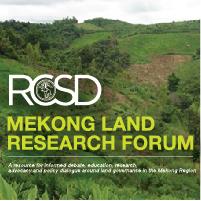Resource information
In 2012, the Government of Myanmar passed the Farmland Law and the Vacant, Fallow, Virgin Land Law, with an aim to increase investment in land through the formalization of a land market. Land titling is often considered “the natural end point of land rights formalization.” A major obstacle to achieving this in Myanmar is its legacy of multiple regimes which has created “stacked laws.” This term refers to a situation in which a country has multiple layers of laws that exist simultaneously, leading to conflicts and contradictions in the legal system. This ambiguity is often manipulated by those who have more access to political and economic resources, particularly those who received large land concessions under the 1988–2010 military regime. In this context, this paper attempts to answer the question: In Myanmar, how do smallholder farmers engage with a stacked legal framework, which is ambiguous and unfairly applied, to defend themselves against land dispossession? The analysis seeks to contribute to the literature on the contest over land control and access through an analysis of how a stacked legal framework can be used to further disenfranchise farmers by elites, or on the contrary, by farmers to gradually reclaim this control through strategic political maneuvering.


